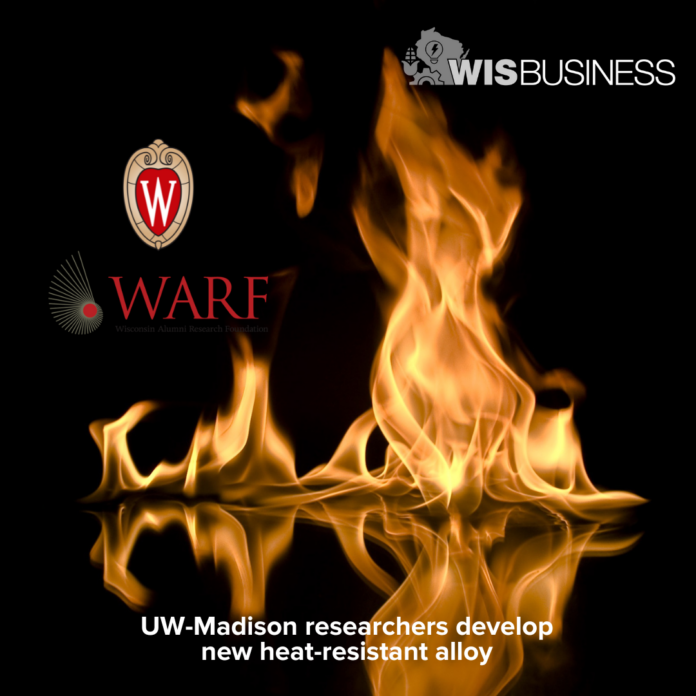UW-Madison researchers have developed a new metal alloy that can withstand higher temperatures, which could be used to improve high-speed aircraft.
The Wisconsin Alumni Research Foundation is touting the technology as a “top licensing prospect” in its engineering and computer science portfolio. It was created by Prof. Dan Thoma of the College of Engineering and graduate research assistant Michael Niezgoda.
In remarks provided by WARF, Thoma discussed how the new alloy offers advantages over what’s currently available in the market. Their alloy can offer protection up to 1,600 degrees Celsius, according to a WARF overview. That’s useful in applications like hypersonic jets and turbines, which generate a lot of heat when moving at extremely high speeds.
This level of protection is 200 degrees Celsius higher than existing methods, the overview shows.
“To the best of our knowledge, there’s nothing that exists like it,” Thoma said. “So it’s going to open up a whole new market of material.”
He explained various technologies including fusion energy can operate more efficiently at higher temperatures, using less fuel. But those environments lead to structural degradation, leading to the need for better systems to limit that breakdown.
The new alloy is made up of molybdenum, chromium and aluminum, according to Niezgoda. Its development began with his own interest in hypersonic aircraft and jet propulsion, he said. The testing process involved putting several metal compositions into a high-heat environment to see how they fared.
“One of our compositions just refused to die,” he said. “We got it all the way up to 1,600 (degrees Celsius) and that’s when we really realized we had something special going on.”
Due to this capability, the invention could help reduce maintenance time and costs for aircraft while enabling “higher mission readiness,” WARF says.
See more on the technology: https://www.warf.org/videos/alloy-protects-materials-at-high-temperatures-2023-warf-innovation-award-nominee/
–By Alex Moe






